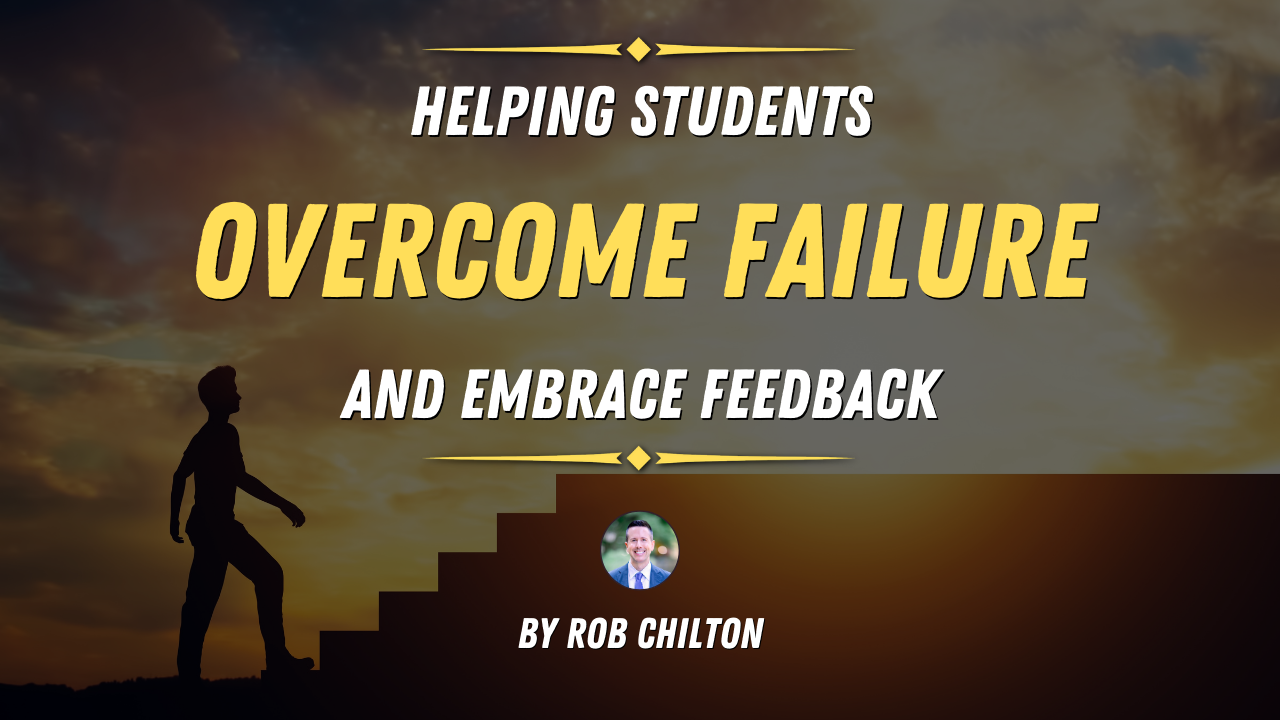Reflections on Potential (and the Messy Work Between)
Nov 01, 2025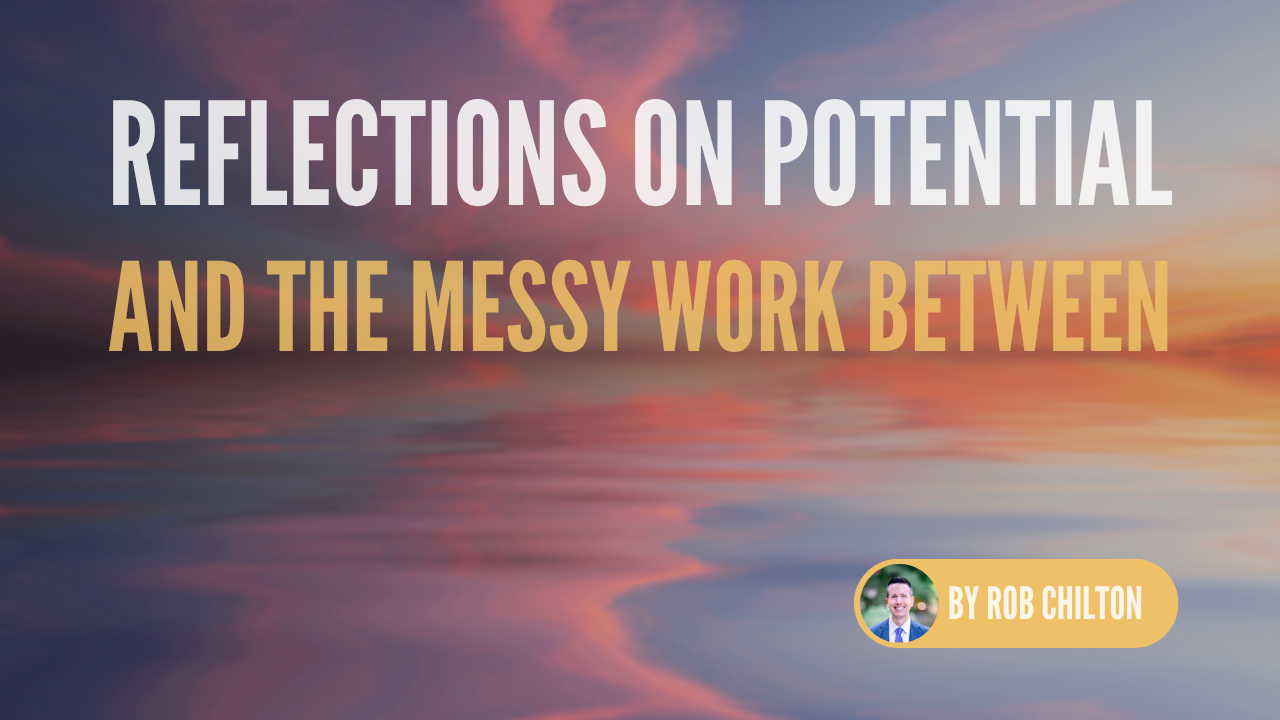
Estimated Read Time: 5 minutes
By Rob Chilton
As teachers, we often talk about helping students reach their potential, usually in the context of achieving their best performance at a concert or competition. While there’s nothing wrong with that, it tends to place our focus on the end result. But reaching our peak performance months from now is really the culmination of thousands of smaller—and sometimes seemingly insignificant—daily battles.
Potential: Stored and Ready
Consider this: In physics, potential is stored energy. It’s the capacity for work or motion that has yet to be realized. A charge sitting still in an electric field already holds potential energy; it’s simply waiting for the right conditions to move or be released. But here’s the thing—a charge doesn’t move on its own. It moves because the surrounding field exerts force upon it. In a way, our students are like this charge. They already hold potential energy; they’re just waiting for the right conditions and for us—the surrounding field—to exert force.
Or consider this one: Potential is like a seed—it already holds everything it needs to grow. All it needs is someone to tend the soil, provide light and water, and create the conditions where growth can take root and flourish. Similarly, our students are like seeds. Their potential is already inside—they just need us to provide the proper conditions to grow.
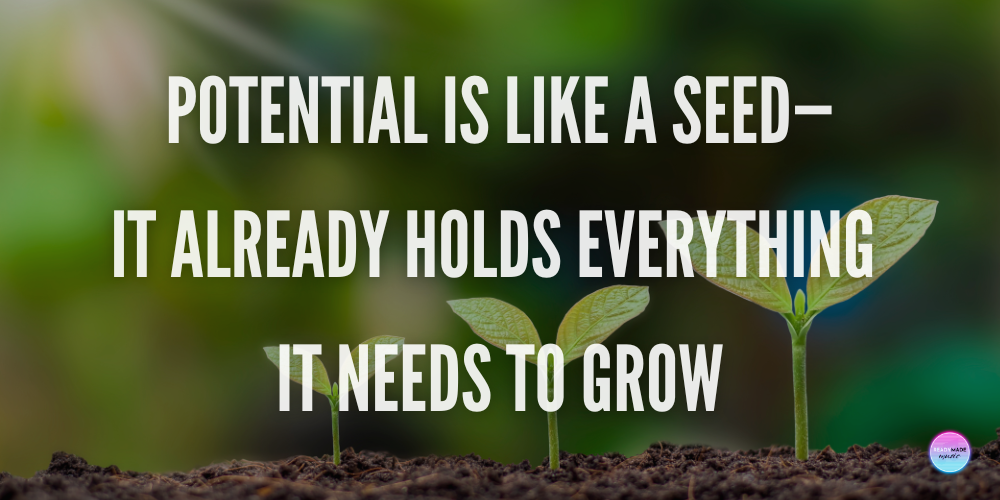
Conditions Matter
Speaking of conditions—they matter. They allow for growth and the manifestation of potential. They include our expectations, rules, and procedures—as well as factors that lie outside our control or influence. The key here is to focus on what we can control and influence—and not to get lost in what we cannot. Here are some examples:
🟢 Conditions We Can Control
- Our macro and micro lesson planning
- Our literature selections, score preparation, and study
- Our expectations, rules, and procedures
- Our follow-through on those expectations, rules, and procedures
- Our presence, tone, energy, pacing, and responses in rehearsal
- Our communication and image within the broader community
🟡 Conditions We Can Influence (but not fully control)
- Our campus master schedule and class configurations
- Our students’ access to functional instruments and necessary supplies
- Their attitudes and habits in rehearsal
- The level of support and communication we receive from parents and guardians
🔴 Conditions Beyond Our Control
- Our students’ home environments and family circumstances
- Their socioeconomic realities
- Their emotional state or mindset upon entering the classroom
- Schoolwide policies, testing schedules, or last-minute campus interruptions
We should be honest about conditions—they matter. Having taught on three very different campuses and visited dozens more as a consultant, I can say with confidence that not all situations are equal—some not even remotely close. From experience, it’s easy to dwell on the conditions we can’t control instead of the ones we can. If you find yourself in a challenging situation, start by optimizing your green and yellow conditions—the areas you can control and influence.
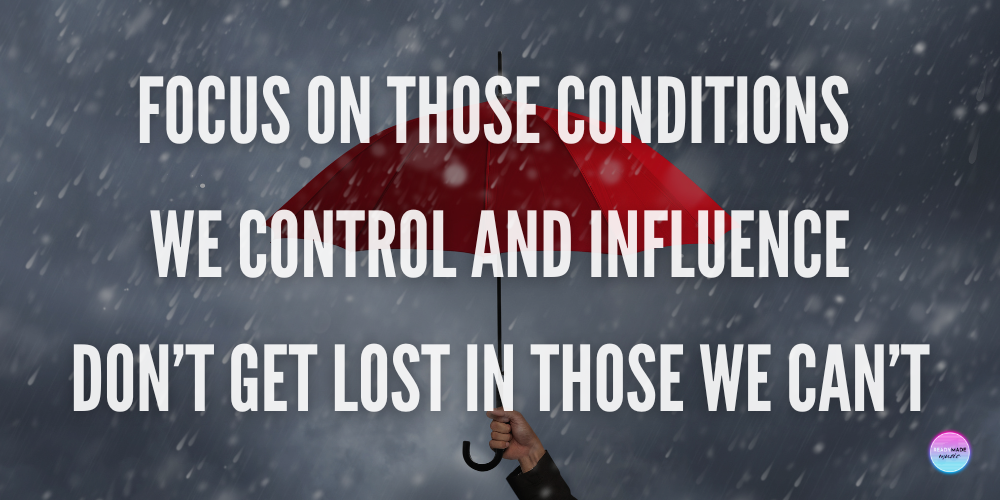
The Exerting Force: We Matter
The final element in unlocking potential is the exerting force. Remember: A charge sitting still in an electric field already holds potential energy; it’s simply waiting for the right conditions and the surrounding field to exert force upon it. We are that force. Our strength and words can mean the difference between a life-changing experience for our students and community—or just another Tuesday night concert.
But even more important than our strength or words is how we hold students accountable—our follow-through and persistence. It’s one thing to tell them to enter the room quietly; it’s another to make sure they actually do it and to hold them accountable when they don’t. That’s the hard part, because it often means assigning consequences or spending valuable time practicing routines. But here’s the thing: doing something right is almost never a waste of time. I’d rather spend a little time now than a lot of time later—and trust me, you will.
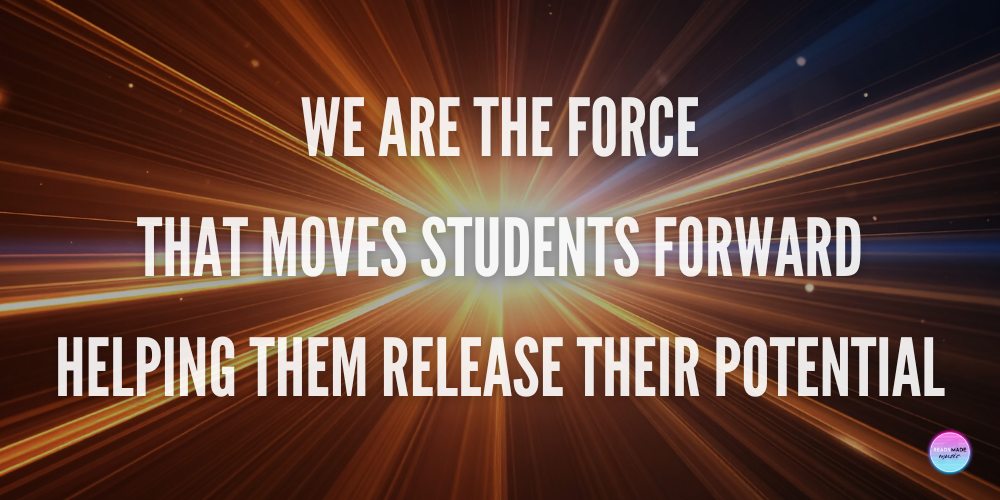
Belief: The Secret Ingredient
Equally important is believing that our students can meet expectations and achieve their potential—and communicating that belief to them. Belief is powerful. It’s an invisible force that shapes both perception and performance, yet it’s often left unspoken.
Think back to a time when someone truly believed in you. How did that make you feel? How did it change the way you approached your work or saw yourself? When students know we believe in them, it changes everything. It builds trust, strengthens resilience, and invites effort. Belief turns possibility into growth, change, and movement. And sometimes, that belief from us is all they need to start believing in themselves.
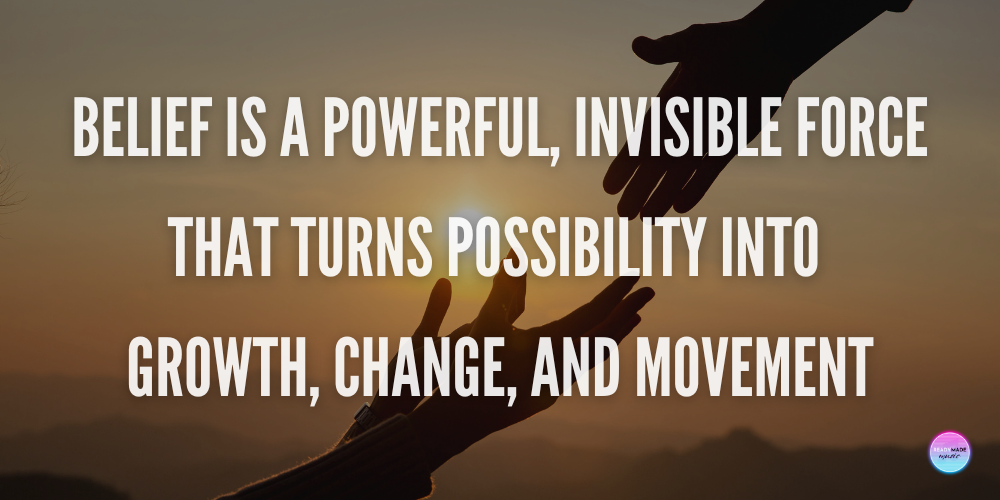
Check out our music literacy method!
Excellence in the Present is Messy
A quote I’ve spent a lot of time thinking about is one often attributed to Aristotle:
"We are what we repeatedly do. Excellence, then, is not an act but a habit."
For years, I struggled to connect with this quote. I mean… I understood it, but I think it’s the second part—the idea of excellence as a habit—that tripped me up. Even at the height of my band-directing career, while preparing for major state and national conference performances, I kept expecting excellence to look and feel different. But it doesn’t.
Excellence in the present is messy. It rarely feels triumphant. It’s insisting on proper classroom entry procedures and waiting through pencil checks. It’s having the strength to stand firm on rehearsal etiquette and the courage to ask for one more rep when it would be easier to just move on. In short, excellence in the present is hard work—but it’s worth it.
So what can we do? Keep showing up. Squeeze every bit of potential out of each day. Set expectations high, and communicate belief. And focus on what we can control, not what we can’t. Every child has potential. The conditions may differ, but potential is always there, waiting for us to help it move.
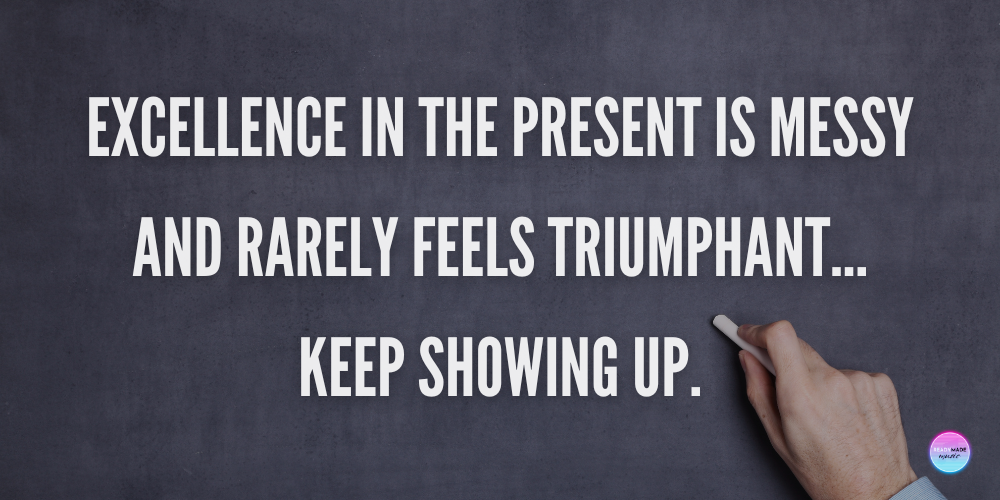
Final Thought
Reaching potential isn’t about matching another program’s success. It’s about getting the most from the cards we’ve been dealt right now—and not obsessively comparing our hand to someone else’s. In my own life, I’ve often found comparison to be the thief of joy. It can quickly rob us of the satisfaction that comes from our own journey and victories. Our role isn’t to help students achieve what others have—or even to beat them—but to teach them to make the most of their own potential and learning.
Suggested reading:
Never miss a new posting!
Check out this short video!
About the author:

Rob Chilton is the creator and owner of Readymade Music, LLC and its content. Previously, Chilton was a middle school band director from 2007-2021. His most recent teaching position was the Head Band Director at Killian Middle School in Lewisville, Texas from 2014-2021.
Under his direction, the Killian Honors Band was named the 2018 Texas Music Educators Association CC Honor Band and performed at the annual 2018 TMEA Clinic/Convention. In 2019, the Killian Honors Band was invited to and performed at The Midwest Clinic in Chicago. Additionally, the Killian Honors Band was named a National Winner in the Mark of Excellence National Wind Band Honors Project in 2015, 2016, 2017, 2018, and 2019.
Chilton is a graduate of Southern Methodist University where he had the opportunity to study music education under the tutelage of Lynne Jackson and Brian Merrill. During his years as a middle school band director, Chilton continued his professional growth under the guidance of his primary clinicians, John Benzer and Brian Merrill.
Chilton’s mission for Readymade Music is to promote the overall well-being of music education and support school music teachers by providing solutions to help make teaching music more efficient and inspirational while increasing engagement for 21st century learners.

© 2025 Readymade Music, LLC
All rights reserved.
The unauthorized distribution and/or reproduction of this work is illegal.


